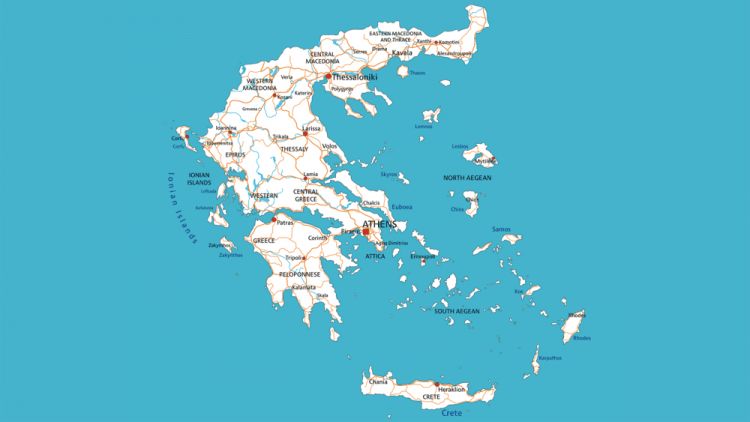
Obtaining Greek citizenship is not just about submitting documents and waiting for a decision. One of the key stages in this process is the citizenship exam, known as πολιτογράφηση (Greek: Πιστοποιητικό Επάρκειας Γνώσεων για Πολιτογράφηση, PEGP). This exam tests not only knowledge of the Greek language, but also a basic understanding of the country’s history, culture, geography, and political system, confirming the candidate’s readiness for full integration into Greek social life. For many, this exam becomes the first real challenge on the path to full participation in Greek society.
In our series of articles, we will explain who needs to take this exam, how it is conducted, and how to prepare for it.
Who takes the exam?
The Πολιτογράφηση exam is mandatory for all foreigners over 18 years old who are applying for citizenship through naturalization. Usually, these are people who have lived legally in Greece for at least seven years, have an official income, and hold a residence permit.
Some categories of candidates may take a simplified version of the exam or be exempt altogether: for example, elderly citizens over 67 years old, people with disabilities, as well as those who graduated from Greek educational institutions.
Special conditions apply to spouses of Greek citizens and people of Greek origin, who may apply for citizenship after just three years of legal residence in the country.
How the exam is structured
The structure of the exam is quite complex and is divided into written and oral parts.
The written part includes tests on the history, culture, geography, and political institutions of Greece, as well as a check of language knowledge (working with texts, listening comprehension, and essay writing) at a level not lower than A2 on the CEFR scale. The written part lasts about two hours.
The oral part of the exam involves answering the examiner’s questions, describing images, and demonstrating basic communicative skills in Greek; it usually takes 15–20 minutes. The total duration of the exam may be around 2.5–3.5 hours.
The exam is graded according to strict criteria. Candidate notebooks do not include personal data to exclude any bias during evaluation. Each paper is checked by two independent examiners, and the final score is calculated as the average of their evaluations. The maximum score is 100, and in order to pass the exam it is necessary to score at least 70 points. At the same time, there are minimum requirements for individual sections: at least 50 points out of 60 for the language part and at least 20 out of 40 for the thematic part.
Like many other exams, this one is designed in such a way that it is impossible to rely solely on one strength while ignoring the others during preparation. To pass the test, all parts must be completed: the test section, the language section (including writing an essay, completing listening tasks, and passing the oral part). Even if you perfectly handle the language section but skip the oral or thematic section, the exam will not be considered passed. After successful completion, the candidate receives a certificate – Πιστοποιητικό Επάρκειας Γνώσεων για Πολιτογράφηση, which has unlimited validity.
When and where the “ΠΕΓΠ” exams are held
The “ΠΕΓΠ” exams are organized by the Greek Ministry of Interior twice a year — usually in May and November. The exam takes place in accredited centers across the country, mainly in large cities and regional administrative centers such as Athens, Thessaloniki, Patras, Heraklion, etc. Candidates from smaller towns and rural areas need to plan their trips in advance to reach the nearest examination center.
If a candidate fails the “ΠΕΓΠ” exam on the first attempt, it can be retaken by paying the standard fee of 150 euros again. However, it is important to prepare more thoroughly for the next attempt.
Is the exam difficult?
The Greek citizenship exam (ΠΕΓΠ) is indeed considered difficult. For example, in April 2021, out of 4,222 candidates only 2,136 people passed — just over half. In the same year, out of approximately 30,000 potential citizenship applicants, only a few thousand attempted the exam. These figures clearly show that ΠΕΓΠ is a serious challenge for candidates.
How to prepare?
It is important to study the Greek language in advance at least up to level A2–B1. If you are starting from zero, expect a minimum of 3 to 6 months to reach one level.
Successful preparation requires a systematic approach. First of all, you should study the history, culture, geography, and political system of Greece. Regular practice of the Greek language — reading, writing, and speaking — is essential. It is useful to take free practice tests, kindly created and shared online by enthusiasts. It is also highly recommended to sign up for individual lessons with a teacher or group preparation courses.
If you want to confidently prepare for the πολιτογράφηση exam, we recommend our online school Skype-Language, where experienced teachers will help you bring your Greek up to the required A2–B1 level. This will allow you to study exam materials with ease, practice listening, writing, and speaking, as well as confidently handle test tasks. Individual lessons and a flexible schedule will help you prepare as effectively as possible without leaving home.
Where to get materials?
All materials for preparing for the “πολιτογράφηση” exam are published on the website of the Greek Ministry of Interior 3–4 months before the exam date (Τράπεζα Θεμάτων Εξετάσεις Ιθαγένειας). They are available for free and include questions, answers, and task instructions. During preparation, it is important to keep in mind that about 30% of the tasks change with each exam: you can start preparing with the materials from the previous year, but several months before the exam it is necessary to update them and practice the new tasks.
In addition, social networks have communities and groups that monitor changes and updates related to the “ΠΕΓΠ” exam, help find up-to-date information, and clarify complex organizational issues. The work of these communities is voluntary and is based on the personal experience of the administrators as well as mutual support and assistance among all participants.
Conclusion
The Greek citizenship exam is not only a test of knowledge but also a symbolic step toward a new stage in life. It confirms that the candidate is ready to become part of Greek society, respects its traditions, and can communicate in the official language. For those planning to become citizens of Greece, thorough preparation for πολιτογράφηση is the key to success.
By passing this exam, you will open the door to a new life full of opportunities in the very heart of the Mediterranean!






























